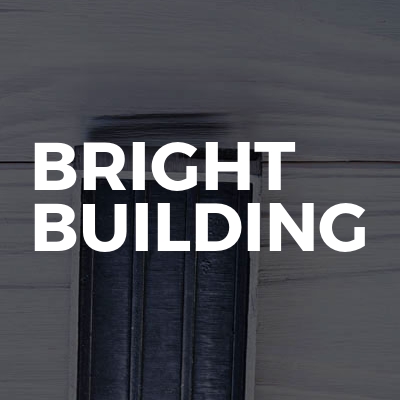Understanding the Role of Patio Contractors in Royston
Patio contractors in Royston play a pivotal role in transforming outdoor spaces into functional and aesthetically pleasing areas. These professionals bring expertise, creativity, and technical skills to the table, ensuring that every patio project meets the client's expectations and adheres to local regulations. Whether you're looking to create a simple outdoor seating area or a luxurious garden retreat, understanding the role of patio contractors is essential.
What Do Patio Contractors Do?
Patio contractors are responsible for designing, planning, and constructing patios. They work closely with clients to understand their needs and preferences, offering advice on materials, design options, and budget considerations. From initial consultation to final installation, these experts manage every aspect of the project, ensuring a seamless process and a high-quality result.
Design and Planning
The first step in any patio project is the design and planning phase. Contractors assess the site, taking into account factors such as size, shape, and existing landscaping. They then create detailed plans and drawings, often using computer-aided design (CAD) software, to visualise the final product. This stage is crucial for ensuring that the patio complements the home's architecture and the surrounding environment.
Material Selection
Choosing the right materials is a key part of the patio construction process. Contractors in Royston offer a wide range of options, including natural stone, brick, concrete, and composite materials. Each material has its own advantages and drawbacks, and the choice will depend on factors such as durability, maintenance requirements, and aesthetic appeal.
Construction and Installation
Once the design and materials are finalised, the construction phase begins. This involves preparing the site, laying foundations, and installing the chosen materials. Skilled contractors ensure that the patio is level, stable, and built to last, using techniques such as compacting the soil and installing proper drainage systems to prevent water damage.
Why Hire a Professional Patio Contractor?
Hiring a professional patio contractor in Royston offers numerous benefits. These experts have the knowledge and experience to handle complex projects, ensuring that the final result is both beautiful and functional. Additionally, they can help navigate local building codes and regulations, preventing potential legal issues down the line.
Expertise and Experience
Professional contractors bring years of experience to the table, having worked on a variety of projects with different challenges. This expertise allows them to anticipate potential problems and find effective solutions, ensuring a smooth construction process and a high-quality outcome.
Time and Cost Efficiency
While it may be tempting to tackle a patio project as a DIY endeavour, hiring a contractor can save both time and money in the long run. Professionals have access to the right tools and equipment, and they can source materials at competitive prices. Additionally, their efficient work practices mean that projects are completed on time and within budget.
Quality Assurance
When you hire a reputable patio contractor, you can rest assured that the work will be completed to a high standard. These professionals take pride in their craftsmanship, using quality materials and proven techniques to create durable and attractive patios. Many contractors also offer warranties on their work, providing peace of mind for homeowners.
Choosing the Right Patio Contractor in Royston
With so many patio contractors to choose from in Royston, finding the right one for your project can be a daunting task. However, by considering a few key factors, you can make an informed decision and ensure a successful outcome.
Research and Recommendations
Start by researching local contractors online and asking for recommendations from friends, family, or neighbours who have recently completed patio projects. Reading reviews and testimonials can provide valuable insights into a contractor's reputation and the quality of their work.
Check Credentials
Before hiring a contractor, it's important to verify their credentials. Ensure that they are licensed and insured, and check for any professional affiliations or certifications. This not only demonstrates their commitment to quality but also protects you in case of accidents or damage during the project.
Portfolio and References
Reviewing a contractor's portfolio can give you a sense of their style and capabilities. Look for projects similar to yours and assess the quality of the work. Additionally, ask for references from past clients and follow up with them to learn about their experiences working with the contractor.
Getting a Detailed Quote
Once you've narrowed down your options, request detailed quotes from each contractor. A comprehensive quote should include a breakdown of costs for materials, labour, and any additional services. Be wary of quotes that seem too good to be true, as they may indicate subpar materials or hidden fees.
Comparing Quotes
When comparing quotes, consider not only the total cost but also the value offered. A slightly higher price may be justified by superior materials, a longer warranty, or a more experienced team. It's important to balance cost with quality to ensure a satisfactory result.
Negotiating Terms
Don't be afraid to negotiate terms with your chosen contractor. Discuss payment schedules, timelines, and any specific requirements you may have. A reputable contractor will be open to discussion and willing to accommodate your needs where possible.
Trends in Patio Design and Construction
The world of patio design is constantly evolving, with new trends and innovations emerging each year. Staying informed about these trends can help you create a modern and stylish outdoor space that enhances your home's appeal.
Eco-Friendly Materials
As environmental awareness grows, many homeowners are opting for eco-friendly materials in their patio projects. Recycled and sustainable materials, such as reclaimed wood and permeable pavers, are becoming increasingly popular. These options not only reduce environmental impact but also offer unique aesthetic qualities.
Natural Stone and Wood
Natural materials like stone and wood continue to be popular choices for patios, thanks to their timeless appeal and durability. These materials can be sourced sustainably and often require less energy to produce than synthetic alternatives.
Permeable Pavers
Permeable pavers are designed to allow water to pass through, reducing runoff and promoting groundwater recharge. This environmentally friendly option is ideal for areas with heavy rainfall or strict stormwater management regulations.
Outdoor Living Spaces
Modern patios are more than just a place to sit; they're an extension of the home, offering a space for relaxation, entertainment, and dining. As such, many homeowners are incorporating features like outdoor kitchens, fire pits, and comfortable seating areas into their patio designs.
Outdoor Kitchens
Outdoor kitchens are a popular addition to patios, providing a convenient space for cooking and dining al fresco. These setups often include grills, countertops, sinks, and even refrigerators, allowing for a seamless outdoor cooking experience.
Fire Pits and Fireplaces
A fire pit or fireplace can add warmth and ambiance to a patio, making it a cosy gathering spot for family and friends. These features come in a variety of styles and materials, from traditional stone fireplaces to modern gas fire pits.
Smart Technology Integration
As technology advances, more homeowners are incorporating smart features into their patio designs. From automated lighting and irrigation systems to outdoor speakers and Wi-Fi connectivity, these innovations enhance convenience and enjoyment.
Automated Lighting
Smart lighting systems allow homeowners to control their patio lighting with a smartphone or voice commands. This technology offers convenience and energy efficiency, as lights can be programmed to turn on and off at specific times or in response to motion.
Outdoor Audio Systems
Outdoor audio systems provide high-quality sound for music and entertainment, enhancing the patio experience. These systems can be integrated with smart home technology, allowing for easy control and customisation.
Maintaining Your Patio for Longevity
Once your patio is complete, proper maintenance is essential to ensure its longevity and appearance. Regular upkeep can prevent damage, reduce repair costs, and keep your outdoor space looking its best.
Cleaning and Sealing
Regular cleaning is crucial for maintaining the appearance of your patio. Sweep away debris, wash surfaces with a mild detergent, and rinse thoroughly. For materials like stone and concrete, applying a sealant can protect against stains and weather damage.
Choosing the Right Sealant
Select a sealant that is compatible with your patio material and suitable for the local climate. A good sealant will provide a protective barrier against moisture, UV rays, and temperature fluctuations.
Frequency of Sealing
The frequency of sealing depends on the material and environmental conditions. Generally, patios should be sealed every 1-3 years, but it's important to follow the manufacturer's recommendations for best results.
Repairing Damage
Addressing damage promptly can prevent further deterioration and extend the life of your patio. Common issues include cracks, loose pavers, and discolouration, all of which can be repaired with the right techniques and materials.
Crack Repair
Small cracks can often be filled with a suitable patching compound, while larger cracks may require professional attention. Regular inspections can help identify and address cracks before they become a major problem.
Replacing Pavers
If a paver becomes damaged or dislodged, it can usually be replaced without disturbing the surrounding area. Carefully remove the damaged paver, level the base, and install a new one, ensuring a snug fit.
Seasonal Maintenance
Different seasons bring different challenges for patio maintenance. By taking a proactive approach, you can protect your patio from the elements and keep it in top condition year-round.
Winter Preparation
Before winter sets in, clean your patio thoroughly and apply a sealant if necessary. Remove any furniture or accessories that could be damaged by freezing temperatures, and cover delicate plants to protect them from frost.
Spring Cleaning
As the weather warms up, give your patio a thorough cleaning to remove any dirt or debris that accumulated over the winter. Inspect for damage and make any necessary repairs before the busy summer season.
Frequently Asked Questions
1. How long does it take to build a patio?
The timeline for building a patio depends on factors such as size, complexity, and weather conditions. On average, a standard patio project can take anywhere from one to three weeks to complete.
2. What is the best material for a patio?
The best material for a patio depends on your preferences, budget, and local climate. Popular options include natural stone, brick, concrete, and composite materials, each offering unique benefits and drawbacks.
3. Do I need planning permission for a patio?
In most cases, patios do not require planning permission, but it's important to check with your local council to ensure compliance with any regulations or restrictions.
4. How much does it cost to hire a patio contractor in Royston?
The cost of hiring a patio contractor varies based on factors such as project size, materials, and complexity. It's advisable to obtain multiple quotes to compare prices and services.
5. Can I build a patio myself?
While it's possible to build a patio yourself, hiring a professional contractor ensures a high-quality result and can save time and money in the long run.
6. How do I maintain my patio?
Regular cleaning, sealing, and prompt repairs are essential for maintaining your patio. Seasonal maintenance, such as winter preparation and spring cleaning, can also help protect your outdoor space.








